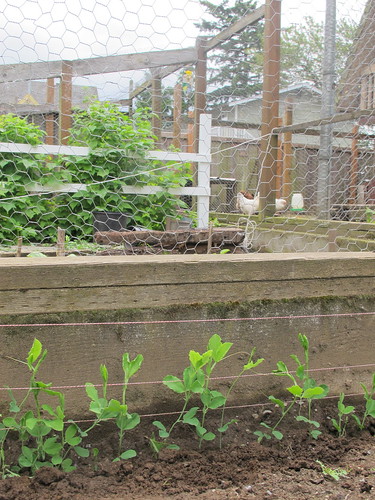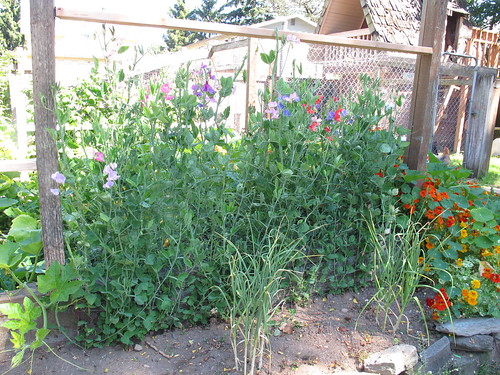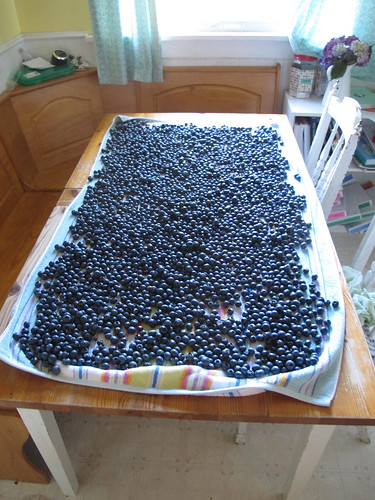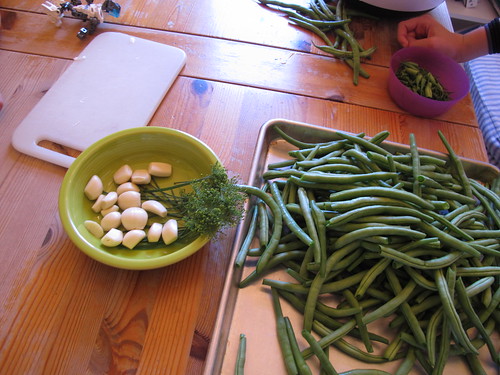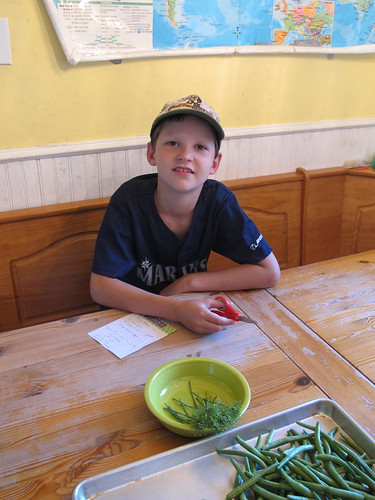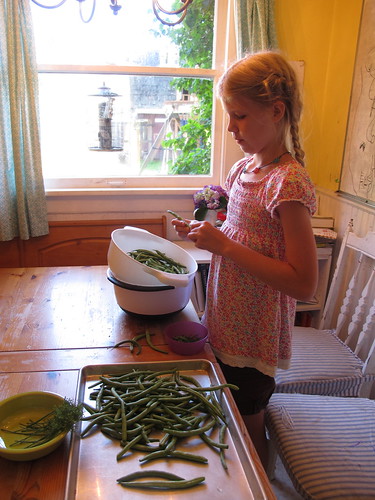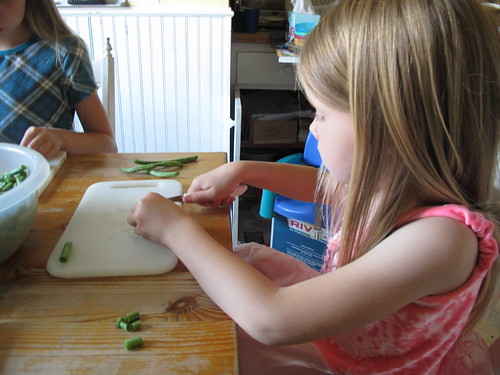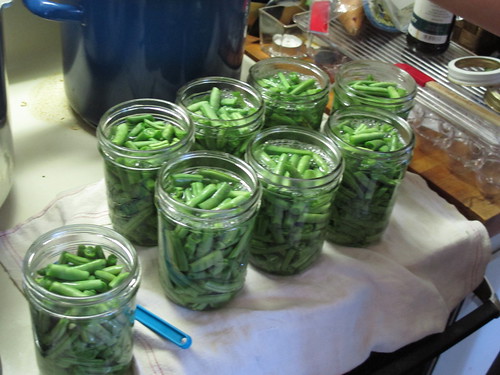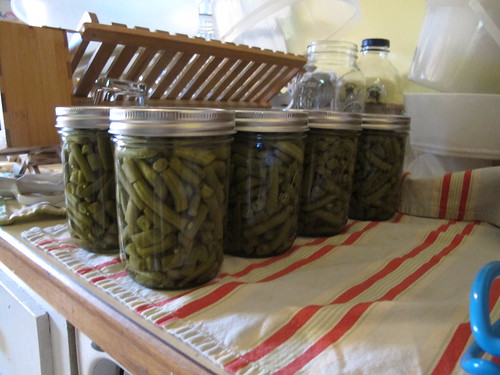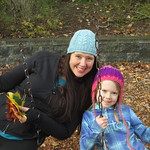I am still trying to process why I ended the year so very tired. Things were fine. School ended. We tested. And then I sort of shut down. I was completely exhausted. I was weepy and discouraged and just overall felt very low. People asked how I was doing-- a basic, "Hey, how are you?" and as I began to answer "Great, fine!" my eyes would immediately fill up with tears. Isn't that strange? It's not like me at all. And there was no reason for it, really-- it wasn't a difficult school year. We ended well. It was all very normal.
But I felt thoroughly weary.
Mark prayed for me, my mom prayed for me, I tried to pray for me. I read my Bible but found it difficult to pray. Somehow I knew God wanted me to speak the Word. So when I read my Bible, I began reading it out loud. And I was intentional about playing worship music and instead of merely listening, I forced myself to sing along. God really ministered to me through that- through speaking His words aloud.
And I've spent the last two months pretending that I don't have a school year to plan. I haven't made notes or lists. I haven't looked at any of my previous notes or lists. I've read very few books. I've been online less and have watched very few shows/movies. I've slept more. I've knitted. I've planted. I've weeded. I've baked. I've hung laundry on the line. I've had long conversations with Mark. We've had picnic lunches in the yard, blanket all spread out, sitting cross-legged in the sun. I've cut flowers from the yard and brought them indoors, making sure to always have vases full of flowers inside. I've lit candles. I've sent letters. I had two free evenings- Mark was camping- and I made some cards. I sewed a little. I made homemade laundry soap again. I sat outside and drew. I've canned. I painted. I've checked out books on typography and practiced hand-lettering. I've listened to more music. I've done little redecorating projects around the house- I put up a bunting over the mantel and recovered our piano bench. I've worked in the yard- nearly every day. I've simply sat and watched the kids play. We've all danced together in the kitchen. We've read stories and colored together.
God has given me great rest through all of these things.
I have had time to pay attention to the beauty around me. I have delighted in it. I've been so much more present with the kids- seeking to pay attention. Being fully in the moment with them as they're speaking or sitting with me. Just resting in that moment, cherishing it- as Adelia sits in my lap: feeling the weight of her body and smelling her hair and really hearing her, really listening. Not thinking "Okay, this and then I've got to get up and do that." Or when Isaac is telling me his dream or about the book he's reading. So often I am busy DOING something else that I'm actually thinking about the dishes I'm washing or what needs to be done next, and I tune him out and sort of nod and say mmmhmmm, but I don't really hear him. He'll walk away and I could maybe give you a few words of what he said but I wasn't truly paying attention. I don't want to be like that. I want him to grow up confident in the knowledge that I care about what he says, that I am one who will pay attention. So lately I have been trying to understand what he's talking about, to really tune in to the sequence of events he's sharing, and also to consider why he chooses that part to tell me about, what is it in that story or character that appeals to my boy?
*
Now it's planning time again, and I approach it cautiously and prayerfully- wanting to figure out a way to maintain this sense of rest as we move ahead into the school year. How can I shed that sense of hurry-up-and-get-to-the-next-thing as we move through our school day? How can I keep creativity in my life; in all of our lives? That's one thing God has reminded me of in this season of rest: expressing myself creatively is important: making things is part of who I am; it's how God has made me, and I find joy in those pursuits. But how do I tuck that into our days? How can I continue to be fully present with the kids when the demands of school are upon us, when everyone is asking me a question at the same time, and when there is a load of laundry to do and a phone call to make and something to copy and things to clean and dinner to make? Even typing that previous sentence makes me a little tearful-- just thinking about being in that season again- of constant need and constant demands on me. Mark has already expressed that he wants to have more of a role in our schooling this year, and I need that and welcome it. I feel like I'm going in fully dependent on God to sustain me and to guide us in every thing. And that's a really good place to begin.
* * *
One other note that is purely blog-related: I am going to turn the comments off for a season.
[This post will still have the commenting option, but future posts will not.] I've thought about doing this many times over the years, but have never taken the plunge. But I think doing so will free me to write without wondering about the response I may or may not get; to write for the pure pleasure of it, rather than thinking of it as a post to get just right for whoever the "audience" is that may be reading here. So I'm trying it for awhile. I can always be reached via email, and that link is on the sidebar where it says "I would love to hear from you!" I do love to hear from you.
